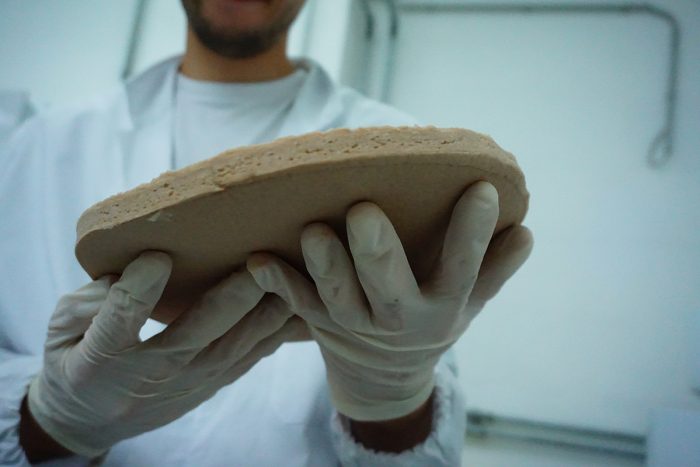VIDA Awarded Project - VV113 - Validation of novel protein source from fungal biomass

Duration:
19 November 2019 / 31 July 2020
Summary;
The European agro-industry is under significant market, environmental, and legislative pressure to reduce its ecological footprint and in particular to find alternative protein sources to meet. To provide an innovative solution to this need MOGU is developing novel protein rich foods and ingredients using fungal fermentation. MOGU technology converts agro-industrial leftovers, such as brewers’ spent grain and yeast or pasta and bread scraps, into food products with improved nutritional values, in particular protein and vitamin content. Protein functionality of fungal biomass resembles egg albumin, being of high quality and ready bioavailable. Besides a generous amount of dietary fibres, fungal biomass also contains several B vitamins and vitamin D precursors. In addition, fungal protein can reproduce meat-like textures (fibrousness) and consistency that cannot be achieved with plant, insect or single-cell protein sources. Some species of filamentous fungi are indeed known for their umami flavours (e.g. shiitake or maitake) similar to those found in beef or fermented soy products. Scaling up MOGU’s bioprocess will contribute to a resource-efficient economy via healthier food sources, improved water management, more efficient energy use, less food loss, and increased efficiency in side-stream bio-valorisation through microbial edible biomass generation.

Partners:
Mogu
Learn more: www.vidaproject.eu I info [at] vidaproject.eu ( ) I Follow us: @h2020vida

This project has received funding from the European Union’s Horizon 2020 Research and Innovation programme, under Grant Agreement nº 777795.
Disclaimer: The content of this document represents the view of the author only and is his/her sole responsibility: it cannot be considered to reflect the views of the European Commission and/or the Executive Agency for Small and Medium-size Enterprises (EASME). The European Commission and the Agency do not accept responsibility for the use that may be made of the information it contains.